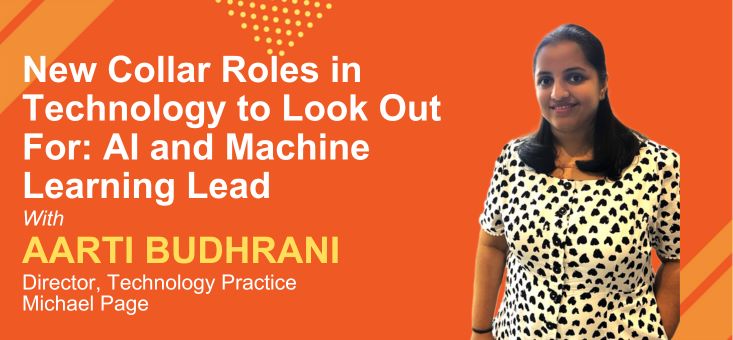If the role of AI and Machine Learning Lead interests you, here’s an example of a job description taken from a job ad on MyCareersFuture:
Responsibilities:
- Design, build, and deploy machine learning models to solve business challenges
- Collaborate with teams to integrate models into production systems
- Train, fine-tune, and optimise models for performance
- Deploy models with APIs and ensure seamless integration
- Monitor, refine, and improve model performance
- Conduct data analysis and present insights
- Stay updated with AI advancements and recommend improvements

If you haven’t heard, “new collar jobs” are a new genre of roles requiring a combination of technical skills without the need for a specialised degree.
They’re gaining traction with employers, who are realising that formal education is not always the best indicator of capability. What truly matters is whether a candidate has the right skills and mindset to perform in a fast-evolving workplace.
Aarti Budhrani, director of Technology Practice at Michael Page Singapore, shares more about this genre of new collar role in the sector, and useful tips for jobseekers and career switchers about it.

Why are AI and Machine Learning Leads considered “new collar”?
This role is considered “new collar” as it emphasises hands-on skills, industry certifications, and real-world experience over traditional degrees. AI professionals often acquire expertise through online courses, coding bootcamps, and self-directed projects rather than formal education to demonstrate industry know-how.
What has changed that has led to this role becoming prominent and needed?
The demand for AI experts has surged due to the rapid adoption of generative AI, automation, and predictive analytics across industries such as finance, healthcare, retail, and logistics.
Businesses seek AI solutions to enhance efficiency, improve decision-making, and personalise customer experiences. The rise of AI ethics and explainable AI has also created new challenges that professionals must address. This therefore is driving the creation of roles and skillsets.
What are the career and salary prospects of this role?
Career prospects in this field are strong given that AI is in the early stages of adoption and scaling in business use case, with entry-level salaries ranging from $90,000- 120,000.
What are the skillsets required in order to take up this role?
Key skills include Python, TensorFlow, PyTorch, machine learning algorithms, cloud computing, and AI governance.
For mid-career switchers, what is necessary in order to move from another industry or job into this role?
Mid-career switchers should develop programming proficiency, complete AI certifications (Google AI, DeepLearning.AI), participate in Kaggle competitions, and build a portfolio showcasing machine learning projects.
This article was done in collaboration with Michael Page.















